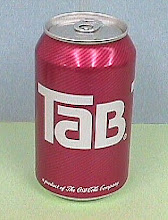From Jonathan Bernstein:
President Donald Trump didn’t have much to work with in his Oval Office address Tuesday night. He’s the least popular president through 719 days of any of his predecessors during the polling era — and he’s pushing something, a border wall, that polls say is even less popular than he is. He’s asking for money to pay for the wall, even though he campaigned on the fantasy that Mexico would pay for it. And he’s shut down the government to try to force Congress to vote for his wall and is now trying to blame lawmakers for the shutdown.
Then there’s his performance in the speech. Not only has Trump never done the practice to master the art (and as James Fallows reminds us, it is an art) of reading from a teleprompter, but he remains astonishingly bad at reading that specialized type of verbiage that politicians so often must handle: speechwriter prose. Trump’s voice fails to rise when the words demand it; he doesn’t insert dramatic pauses, and can’t seem to revel in the pageantry of the frills that speechwriters love to insert into the text.
It’s true that these presidential addresses are overhyped, and don’t really have much potential to change public opinion even when done well. In any case, to the extent a prime-time speech can do the president some good, this one surely won’t.
What’s most striking is how much Trump sabotages his own presidency — and the hopes of his supporters — by just refusing to do the basic prep work. Watch George W. Bush in 2001 and then again in 2004: He went from awful at the teleprompter to being a total pro. Bill Clinton could deliver a teleprompter speech and make it seem like he was speaking off the cuff. Ronald Reagan could make speechwriters’ prose soar, turning words that might have been lame cliches in the voice of a lesser talent into memorable moments. And even George H.W. Bush, hardly a natural, managed to learn how to be acceptable at it after a while. The point is that none of this really comes naturally. And Trump just isn’t willing to work at it. Just as he isn’t willing to do the hard work of learning about policy, or how the government works, or any of the things it takes to be an adequate president.
Fact-checking him this time is hardly worth the trouble; by the end of the short speech, I felt like I was one of few Americans left watching Trump force himself to finish something he seemed to lack any interest in at all.
From Josh Marshall:
David Axelrod said a couple days ago that the the Oval Office format is the worst format for President Trump. Boy, is that right. It’s scripted. It plays to his woodenness reading a script. He doesn’t get the energy from a crowd. This was the same script he’s been reading from for months. If anything, it was more muddled because his speechwriters dropped a number of the more jarring lies. I think this meant basically nothing politically.
From Jennifer Rubin:
The only thing surprising about President Trump’s address from the Oval Office on Tuesday night was how totally unnecessary and un-newsworthy it was. Trump did not declare he was reopening the government. He did not issue an “emergency” declaration. He did not even offer any new arguments for a border wall that voters say they don’t want for a crisis that doesn’t exist. Instead, he delivered a weak, unconvincing promise to sit down with Democrats. Never has he looked so helpless and small.
In short, the president snookered the networks into giving him free time to commune with his base. They should not make that mistake again.
The speech, again not surprisingly, was delivered in a wooden cadence. Without a cheering campaign-style rally filled with his cult followers, his words fell flat, and he seemed to lack energy. Another rally might have worked better.
From David Frum:
Well, that was the shortest, most easily resolved national emergency in U.S. history. Twelve hours ago, the president was preparing to set aside the regular process of law. By 9 p.m. eastern time? Not so much.
Perhaps somebody pointed out that 15-year civil-engineering projects do not look very convincingly like emergency measures. “My house is burning! Time to begin the process of calling for design proposals for a new fire station.”
President Donald Trump is about to discover the reverse side of Richard Neustadt’s famous observation that the most important presidential power is the power to persuade. Trump’s conduct as candidate and president long ago deprived him of any power to persuade anyone not already predisposed to support him. To date, Trump has governed by leveraging his high approval rating within the Republican Party. From the point of view of former Speaker Paul Ryan and Majority Leader Mitch McConnell, Trump’s 90 percent approval rating among Republicans mattered a lot more than his 39 percent approval rating among Americans in general.
Matthew Gertz, of Media Matters, weighs in from a different perspective:
1) Ask all the broadcast networks for prime-time airtime.— Matthew Gertz (@MattGertz) January 9, 2019
2) Feckless networks provide it.
3) Give a speech making no news, just reiterating the same argument you've been making for years.
4) Front-page above-the-fold coverage in newspapers across the country. pic.twitter.com/nEOCW6xa1B
Apparently Donald has also said, to network news anchors yesterday, that tomorrow's trip to the border is just a photo op that will accomplish nothing. (Read about it here.)


No comments:
Post a Comment